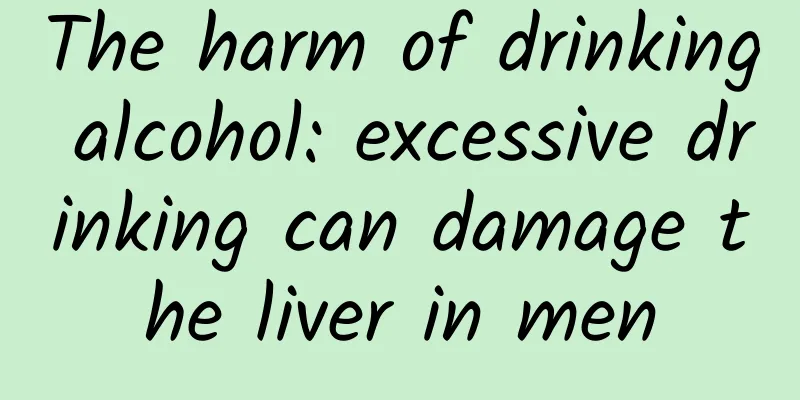Bladder stones symptoms, signs and dietary taboos

|
Bladder stones are a common stone disease and are extremely harmful to men's health. What are the symptoms of this disease and how can it be prevented? Symptoms 1. Pain during urination Pain during urination can be caused by the stimulation of the bladder mucosa by the stones. It manifests as dull pain in the lower abdomen and perineum, or it can be obvious or severe pain. The pain worsens after activity, and the pain can be relieved by changing the body position. It is often accompanied by symptoms of frequent urination, urgency, and pain during urination, and the pain worsens at the end of urination. Child patients often pull the penis due to severe pain during urination, cry and sweat profusely. In order to avoid pain during urination, children will urinate in a special position, that is, bend their knees forward and lean their trunk back 30° when standing. Once the urine stream becomes thin or the urine flow is interrupted, change the body position immediately and continue urinating after the stone is removed. 2. Urinary obstruction When the stone is embedded in the bladder neck, it may cause obvious urination difficulties and typical urination interruption phenomenon, and may also cause acute urinary retention. Patients with prostatic hyperplasia already have symptoms of urination difficulties. For example, the prostate is huge in size, protruding into the bladder and raising the position of the urethral opening. The stone is not easy to block the urethral opening, so urination interruption phenomenon will not occur. 3. Hematuria is mostly terminal hematuria. When bladder stones are complicated by infection, bladder irritation symptoms and purulent urine may occur. Dietary taboos for bladder stones 1. Do not eat too much food rich in oxalate, including beets, celery, beans, chocolate, coriander, spinach, and tea. Eat less food high in oxalate and calcium, such as spinach, kelp, walnuts, rapeseed, pickled hairtail, etc. Patients with oxalate stones should avoid eating foods high in oxalate. 2. Limit the intake of meat, eat more whole grains rich in fiber, and limit the intake of sodium salt, such as: reducing the intake of protein, including meat, cheese, fish and chicken. 3. Do not drink alcohol, strong tea or strong coffee. Drink boiled water instead. Avoid foods high in cholesterol, such as animal liver, kidney, brain, shrimp, clams, etc. Appropriate diet for bladder stones Patients should have a diversified diet, rich in nutrients and vitamins, such as fresh vegetables, cucumbers, beans, mung bean sprouts; fresh fruits, such as apples, pears, and watermelons. Bladder stone patients must develop the habit of drinking plenty of water, generally 1500-2000 ml of water per day is better. Warm reminder: Bladder stones are common urinary system diseases. If you don't pay attention to early detection, it will cause great harm to the human body and need to be taken seriously. In addition, for the formation and prevention of urinary tract stones, dietary conditioning and taboos also play an important role. |
<<: What causes scrotal dampness and itching?
>>: These things can improve sperm motility and are worth collecting
Recommend
How to treat short sex life
What men fear most is that they cannot satisfy th...
What should men do if they have frequent urination and cannot urinate completely?
Many men are troubled by urinary diseases, such a...
What is the cause of pain in the lower right side of the abdomen?
Abdominal pain is a common and complicated sympto...
Can prostate enlargement heal itself?
Prostate enlargement is actually a common disease...
What to do if a man has acne due to endocrine disorders
In fact, it is not uncommon for male friends to h...
What kind of clothes do women like to wear?
Every woman likes to dress up appropriately to ma...
What causes men's penis to itch?
Women have weaker constitutions and are often pro...
Does amaranth contain oxalic acid? How to cook it to facilitate absorption!
Traditional Chinese medicine believes that amaran...
What is the reason for a red spot on the glans?
It can be said that there are still many hidden h...
Why do my hands and feet sweat? How can I treat it?
Many people are born afraid of cold, especially i...
How can men nourish the kidneys and strengthen their yang?
For men, they face such great work pressure all d...
How to recover from kidney deficiency and impotence
In the case of kidney deficiency, it is easy for ...
4 Sex Mistakes That Will Scare Your Woman Away
Women are shy when they are with their lovers, es...
The harder a man's penis is, the more problems he has with his body.
Whenever he gets together, Mr. Zheng always compa...
Notes on male sperm testing
If a couple has normal sexual life for a year wit...









